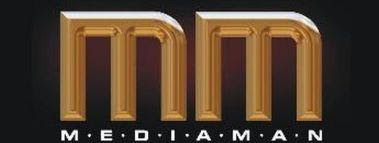With the economy worsening, gambling taxes might help plug the gaps
February 2, 2009 (InfoPowa News) -- The Associated Press recently ran an interesting story reportoing that as many as 14 U.S. states may be considering an expansion in gambling licenses to help plug widening gaps in state budgets.
It's a possibly easier out for state administrations faced with the choice of raising taxes at the worse possible time or cutting services and risk antagonizing hard-pressed voters.
"Who wouldn't be interested if you're a politician who needs to fund programs?" Bo Bernhard, director of research at the International Gaming Institute at the University of Nevada, Las Vegas -- a government-funded program told AP.
"While gambling has not been immune from the recession, it has held up relatively well compared with states' other revenue streams, such as income and sales taxes. This helps explain why past industry growth spurts have been preceded by economic downturns," the news agency noted, giving as an example Rhode Island, which opened America's first racetrack casino in 1992, and four states soon followed.
More recently, states faced with sagging revenues during the 2001 recession joined multi-state lotteries such as Powerball and gave more leeway to Native American tribes seeking to expand their casinos.
Analysts told Associated Press that the latest round of gambling initiatives are noteworthy in volume and ambition -- a sign that the industry aims to capitalize on states' badly bruised economies.
"From the gambling industry's point of view, this is their big chance," said Earl Grinols, an economics professor at Baylor University who specializes in gambling.
Ohio's casino advocates, including lobbyists working for Penn National Gambling Inc., are pushing a variety of large-scale development projects. In Georgia, a developer working with Dover Downs Inc. wants to transform a blighted section of downtown Atlanta with a 29-story hotel that would attract tourists with more than 5,500 video lottery terminals.
The developer pitching the $450 million Atlanta project, Dan O'Leary, estimates $300 million a year in revenues would be funneled to the state, helping to pay for a popular lottery-funded scholarship that provides in-state college tuition for students with "B" averages.
Even Hawaii, which along with Utah is one of two states without a lottery or other form of legalized gambling, may consider a change. Aides to Governor Linda Lingle, long an opponent of gambling, say she is open to discussing it as a way to close the state's growing budget gap.
Gambling in the U.S.A. is a $54 billion annual industry that employs more than 350,000 people, with most state gambling revenues coming from lotteries, racetracks and betting devices such as slot and video poker machines. Twelve states reap tax money from full-fledged casinos, and 23 others have casinos on Native American reservations, which generally do not pay taxes to states.
Opponents of gambling point to its dangers. "We've got gambling in 48 states, and you'd think if it worked, you wouldn't have budget problems or education problems," said Tom Gray, a field director for StopPredatoryGambling.org.
Many of the new gambling proposals seek to expand footholds in states that already allow limited gambling, the AP reports, pointing to the state of Kentucky, where the House speaker had proposed allowing video gambling terminals at the state's racetracks, and to New Hampshire, New York and Texas, where legislators are considering proposals this year to allow similar gambling terminals at their tracks. Casino advocates plan to push for casino-style gambling in hurricane-ravaged Galveston, Texas, as well.
Lawmakers in other states are talking about reversing hard-fought crusades to tighten restrictions on gambling. Nine years after South Carolina lawmakers outlawed video poker, state Senator Robert Ford is fighting to make it legal again. Since July, lawmakers have cut roughly $1 billion from the state's budget to address revenue shortfalls.
And in Ohio, where voters repeatedly have rejected ballot proposals to expand gambling, Governor Ted Strickland said he is willing to listen to proposals to help close a $7 billion shortfall in the next two-year budget.
The moves come despite indications that gambling, long considered to be almost recession-proof, has taken hits from the global economic slowdown. This has resulted in layoffs, declining revenues and falling stock prices impacting casino firms. State-run lotteries are faring better, though: More than half of the states with lotteries have reported rising sales over the past six months.
Media Man Australia Profiles
Gambling News
Politics
